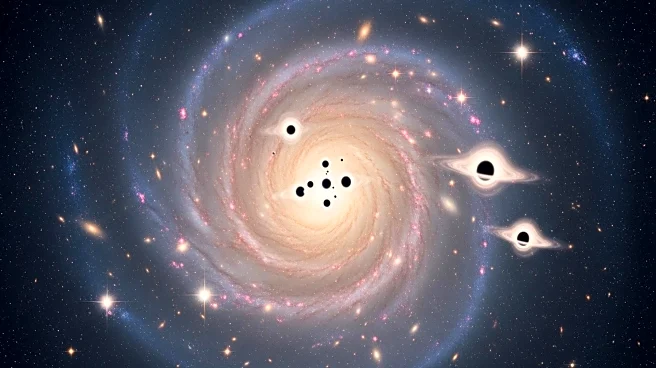What is the story about?
What's Happening?
An international research team has discovered that stellar-mass black holes, or 'small' black holes, exhibit dynamic behavior when consuming surrounding matter. Using the X-Ray Imaging and Spectroscopy Mission (XRISM), researchers observed these black holes as they stripped material from companion stars, forming accretion disks. The study, led by Jon Miller of the University of Michigan, provides insights into the feeding patterns of small black holes and their potential impact on the evolution of galaxies.
Why It's Important?
Understanding the feeding behavior of small black holes offers clues about the gas flow onto supermassive black holes, which could influence galactic evolution. The findings provide a rare glimpse into the dynamics of accretion disks and the processes that govern black hole growth. This research contributes to the broader understanding of cosmic systems and the role of black holes in shaping galaxies, including our own Milky Way.
Beyond the Headlines
The study highlights the importance of international collaboration in advancing space research, with contributions from multiple countries and agencies. The use of advanced spectroscopy techniques allows for precise analysis of cosmic phenomena, offering new insights into the origins and behavior of black holes. The findings underscore the complexity of black hole systems and the need for continued exploration to unravel their mysteries.















